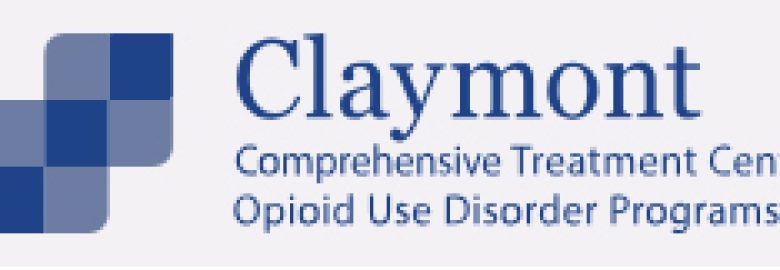
Claymont Comprehensive Treatment Center
Claymont Comprehensive Treatment Center provides medication assisted treatment to individuals aged 18 and older who are struggling with an addiction to opioids.
Patients receive a comprehensive treatment approach which can incorporate the following prescription medications to aid in the recovery process:
Methadone: Methadone is a synthetic medication that provides relief from opioid cravings, as well as the symptoms that are associated with withdrawal. Methadone is an opioid agonist that aids patients in safely weaning off of opioids without causing the same euphoric high that is often associated with opioid use.
Subutex: Subutex is a partial opioid agonist-antagonist that consists of buprenorphine as its single active ingredient to block the effects of opioids within a patient’s brain. Patients who are given Subutex experience a reduction in cravings for additional opioids and a decrease in withdrawal symptoms.
Suboxone: Suboxone is comprised of both naloxone and buprenorphine as its active ingredients. Suboxone lowers withdrawal symptoms as well as cravings for additional opioids, while also causing symptoms of withdrawal should a patient attempt to abuse this medication or other opioids during the course of treatment.
Vivitrol: Vivitrol is a non-narcotic, non-addictive medication given once monthly via injection. Vivitrol includes naltrexone as its active component to aid in the reduction of opioid cravings, as well as decreases the symptoms that can take place during withdrawal.
The medications prescribed, as well as the specific dosages given, will vary between patients based on their specific needs. Medications can also be altered throughout the course of treatment if deemed appropriate.
Claymont Comprehensive Treatment Center believes that patients must receive additional support while taking part in medication assisted treatment that includes Vivitrol, Subutex, Suboxone, or methadone. Our dedicated team of physicians, nurses, and counselors provides patients with individualized care to ensure that their specific needs and treatment goals are met. The following therapeutic interventions are available to patients to provide individuals with a truly comprehensive treatment approach:
- Individual therapy sessions provide patients with the opportunity to openly discuss their feelings in a safe one-on-one setting with a qualified counselor.
- Group therapy sessions are counselor-led sessions that provide patients with the opportunity to gain support, encouragement, and insight from other patients who truly understand the struggles associated with addiction and recovery.
Claymont Comprehensive Treatment Center provides individuals with the opportunity to overcome addictions to opioids by receiving the highest quality of comprehensive care available. Breaking free from the cycle of addiction and achieving long-term recovery is possible with the assistance of our dedicated team of medical professionals.
How Methadone Treatment Works
Prescribed within opiate recovery programs since the 1960s, methadone has decades of numerous clinical research studies behind it to verify its safety and effectiveness in treating opioid addiction. In comparison to other medications utilized within opioid addiction treatment programs, none have been studied more closely than methadone. Given daily in the form of a dissolvable tablet or a liquid solution, methadone works in collaboration with the patient’s central nervous system by averting the symptoms associated with withdrawal as well as cravings for additional opioids.
Numerous studies have verified that, when taken as directed under the supervision of a qualified healthcare professional, methadone does not present patients with any notable long- or short-term health risks due to methadone’s non-toxic nature. Medical experts advise that any side effects that may take place typically do so during the induction phase of treatment when appropriate dosage levels are being determined.
According to the U.S Department of Health and Human Services (DHHS), methadone is a safe option for pregnant women who are struggling with an addiction to opioids. Incorporating methadone into treatment does not cause any harmful health risks to either the mother or her child.
As is the case with any medication, there are risks involved with methadone if taken in a way other than what is directed by the prescribing medical professional. Overdosing on methadone is a risk for individuals who abuse it for purposes other than its original intended use. While methadone overdoses are the cause of one-third of all prescription medication related deaths every year, it is important to note that these deaths are directly related to the illegal abuse of methadone and are not related to the use of methadone within a medication assisted treatment program.
When taken as prescribed under the guidance of a qualified medical professional as part of a comprehensive medication assisted treatment program, methadone is an extremely safe and effective option for those struggling with addictions to opioids.
The Effectiveness of Methadone Treatment
According to the U.S Centers for Disease Control and Prevention (CDC), treatment that utilizes methadone as a treatment option for opioid addiction is the most effective method of treatment available today.
Additionally, the CDC reports that numerous studies have verified the following achievements directly related with methadone maintenance treatment:
- Lowering or ceasing opioid abuse
- Lessening the chances of overdose
- Decreasing the risk of contracting hepatitis B, hepatitis C, and HIV/AIDS
- Drastically increasing life expectancy (the average rate of death amongst opioid addicts who take part in methadone treatment is 30 percent less than those who do not receive treatment)
- Lower chances of taking part in criminal activity
- An improvement in family relationships and career potential
- Better outcomes for both pregnant women and their babies
When taken as directed within a medication assisted treatment program, methadone is an effective and safe treatment option to help men and women overcome addictions to opioids.
The Benefits of Methadone Treatment & Counseling
While methadone alleviates the physical symptoms of withdrawal and cravings for additional opioids, patients must also obtain treatment for the emotional components of addiction as well. By utilizing counseling services within a medication assisted treatment program, patients are given the opportunity to discuss and tackle the underlying causes that may have aided in the development of their addictions in the first place.
How You Can Be Successful in a Medication Assisted Treatment Program: Although methadone has been clinically proven to aid in the treatment of opioid addiction, it is imperative for patients to understand that it is not a “cure all.” Since no singular medication or treatment can quickly cure patients of their addictions to opioids, patients must understand that a combination of time, dedication, and work is required on their end in order to successfully achieve long-term recovery. By taking part in a medication assisted treatment program, patients are given the opportunity to team up with a group of highly trained physicians, nurses, and counselors in order to obtain the highest quality care available. By following their advice, while also playing an active role in treatment, patients are able to drastically increase their chances of long-term recovery.
How to Support Your Loved One During Medication Assisted Treatment: In order to provide your loved one with the highest level of support during his or her treatment, you must first take care of your own needs. Addiction impacts everyone associated with it, not just the individual who is physically abusing the substance. By consulting with experts within a medication assisted treatment program, you will be able to gain the resources and support required to provide the highest quality of care and support to your loved one. Through educating yourself about addiction, understanding the benefits as well as the limitations of treatment, and learning what your loved one will need from you throughout his or her journey to recovery, both you and your loved one are able to reap the benefits of you taking those actions. Taking part in family therapy as well as support groups that are specific for loved ones of receiving addicts will also provide you with the support and assistance you will require to move forward. Remember, in order to provide support for your loved one, you must also take care of your needs as well.
Is it important to find a “methadone clinic near me?” It is important that you or your loved one have a strong support system to be successful in treatment.

